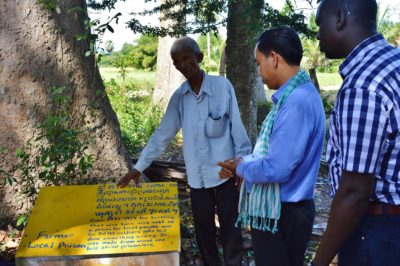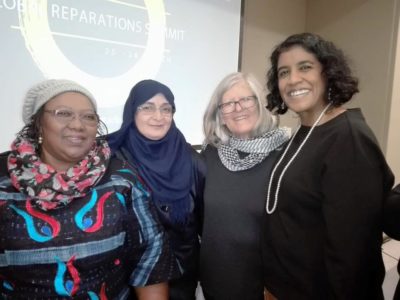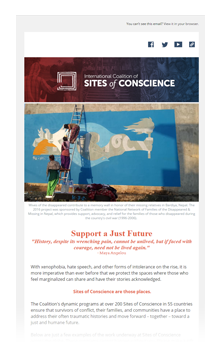
Sites of Conscience around the world use history to address today’s most pressing human rights issues. In some cases, this history is from the distant past. But for many of the Coalition’s members in countries just emerging from conflict or still experiencing it, this history is painfully fresh. These sites often focus on the hard work of preserving places of struggle as well as documenting and memorializing the stories of victims and survivors to safeguard history and pave a new path toward peace. Like all Sites of Conscience, their activism is grounded in the power of memory.
In 2014, the Coalition founded the Global Initiative for Justice, Truth and Reconciliation (GIJTR), a consortium of nine organizations from five continents, that together address in a multi-dimensional and integrated manner the urgent needs of communities transitioning from conflict for local-level memory and memorialization programs. Using Sites of Conscience methodology, GIJTR focuses on developing and implementing holistic, multidisciplinary projects that support and engage civil society organizations, victims and survivors in transitional justice processes – a crucial step, but one that is often overlooked by formal transitional justice mechanisms.
Since its launch, GIJTR has worked with 373 civil society organizations in 17 countries, including Colombia, Iraq, Yemen and Syria. It has supported over 70 transitional justice projects and assisted in the collection of nearly 3000 narratives of human rights violations.
“By supporting and building local expertise,” says Ereshnee Naidu-Silverman, Senior Program Director of the Coalition’s Global Transitional Justice Initiative, “GIJTR focuses on context-specific approaches and multidisciplinary, flexible methodologies, ensuring that multiple voices are included in transitional justice initiatives and truth, justice and reconciliation processes are sustained through local ownership.”
At its annual partners meeting held from March 19-22 in Belgrade, Serbia, GIJTR partners shared lessons learned from its extensive programs in South Sudan, Sri Lanka, Guinea and Côte d’Ivoire, where victims’ needs are being met through a variety of means including psycho-social support, documentation initiatives, capacity building workshops, and forensics training. GIJTR also began developing new projects to be implemented in 2018-19, including an initiative to connect legal professionals and community-based documenters collecting witness statements to ensure that documentation can support legal cases; a project that advocates for the inclusion of economic, social and cultural rights in transitional justice processes; and a series of workshops that will bring young people from countries in Africa that are at risk of violence or emerging from it together with those from countries there that have engaged in truth commissions to help educate the next generation on linkages between atrocity prevention, truth, reconciliation and justice.

After the annual meeting, GIJTR hosted a Global Reparations Summit in Belgrade from March 25-26, bringing together approximately 80 victims’ associations, human rights activists, experts in transitional justice and other relevant stakeholders from 35 countries around the world. Summit participants highlighted key and common challenges in the development and implementation of reparations programs as well as identified widely applicable solutions and ways forward at the national and international levels.
“The Summit provided participants a unique platform to connect and exchange experiences of reparations delivery across contexts, identifying specific local as well as global challenges and opportunities in which existing legal frameworks and mechanisms should be improved and amended to support effective redress and reparations for victims of human rights violations,” explains Naidu-Silverman.
To learn more about GIJTR, please click here and also follow the Initiative on Twitter and Instagram at @gijtr. For more pictures from the annual meeting, which coincided with the Coalition’s annual board meeting, please click here.

